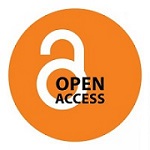IMPLEMENTASI APLIKASI PEMBELAJARAN INTERAKTIF BERBASIS KECERDASAN BUATAN UNTUK MENINGKATKAN KREATIVITAS SISWA DALAM PEMBELAJARAN MATEMATIKA DI SMP NEGERI 1 BANDAR MASILAM
Sari
Pengabdian kepada masyarakat ini bertujuan mengimplementasikan pemanfaatan kecerdasan buatan (AI) dalam pengembangan aplikasi pembelajaran interaktif guna meningkatkan kreativitas siswa SMP Negeri 1 Bandar Masilam pada mata pelajaran matematika. Permasalahan awal menunjukkan bahwa kreativitas siswa dalam memecahkan masalah matematika masih rendah akibat dominasi metode pembelajaran konvensional. Melalui pendekatan partisipatif, tim pengabdi merancang dan mengaplikasikan perangkat lunak berbasis AI yang dapat dioperasikan melalui smartphone siswa. Kegiatan dilaksanakan dengan tahapan sosialisasi, pelatihan, pendampingan, serta evaluasi. Hasil pengabdian menunjukkan adanya peningkatan signifikan pada kreativitas siswa, yang ditunjukkan melalui perbandingan pre-test dan post-test, serta observasi partisipatif dalam proses belajar. Implementasi aplikasi ini terbukti efektif sebagai inovasi pembelajaran, sekaligus memberikan kontribusi pada pemanfaatan teknologi AI di bidang pendidikan menengah. Program ini diharapkan menjadi model pengembangan pembelajaran interaktif yang dapat direplikasi pada sekolah lain.
Kata Kunci
Teks Lengkap:
PDFReferensi
Bicer, A., Marquez, A., Colindres, K., Schanke, A., Castellón, L., Audette, L., Perihan, C., & Lee, Y. (2021). Investigating creativity-directed tasks in middle school mathematics curricula. Thinking Skills and Creativity, 100823. https://doi.org/10.1016/J.TSC.2021.100823.
Butsenko, A. (2024). Science in the Language of the Heart: Ukrainian Language and Literature in the New Ukrainiian School as a Driver of STEM Development. Problems of Education, (2(101), 58-75. https://doi.org/10.52256/2710-3986.2-101.2024.04
Choi, I. (2022). Exploring teaching and learning methods using artificial intelligence (AI) in the mathematics classroom: Focusing on the development of middle school statistic scenarios. Korean School Mathematics Society. https://doi.org/10.30807/ksms.2022.25.2.003.
Creswell, J. W., & Plano Clark, V. L. (2018). Designing and conducting mixed methods research (3rd ed.). SAGE Publications.
Del Pezo, E., Yagual, N., Ibadango, S., & Brito, C. (2024). Use of Artificial Intelligence in High School Mathematics Teaching. Revista Iberoamericana de la Educación. https://doi.org/10.31876/ie.v8i3.273.
Huang, R. H., Liu, D. J., Tlili, A., Yang, J. F., & Wang, H. H. (2021). Handbook on facilitating flexible learning during educational disruption: The Chinese experience in maintaining undisrupted learning in COVID-19 outbreak. Smart Learning Institute of Beijing Normal University.
Ifenthaler, D. (2025). Computer-based diagnostics and systematic analysis of knowledge: Critical reflections and advancements. Springer.
Jorge Olivares Funes, Pablo Martin, Byron Droguett, Alexandra Burgos. Exploring Student Perceptions of GeoGebra Software for Learning the Parabola on the Cartesian Plane: A Study in Antofagasta, Chile, 2024. New Horizons of Science, Technology and Culture Vol. 3, BP International, pp.154-162, 2025.
Jose B, Cherian J, Verghis AM, Varghise SM, S M and Joseph S (2025) The cognitive paradox of AI in education: between enhancement and erosion. Front. Psychol. 16:1550621. https://doi.org/10.3389/fpsyg.2025.1550621
Kemendikbudristek. (2020). Merdeka Belajar: Kebijakan transformasi pendidikan. Jakarta: Kementerian Pendidikan dan Kebudayaan.
Kemendikbudristek. (2022). Laporan hasil asesmen kompetensi minimum (AKM) literasi numerasi siswa SMP. Jakarta: Balitbang.
Marrone, R., Taddeo, V., & Hill, G. (2022). Creativity and Artificial Intelligence—A Student Perspective. Journal of Intelligence, 10. https://doi.org/10.3390/jintelligence10030065.
Muntazhimah, M. (2023). Magic Forms and The Mathematical Creative Thinking Ability of Secondary School Students. Mathline : Jurnal Matematika dan Pendidikan Matematika. https://doi.org/10.31943/mathline.v8i4.550.
Na, D., Choi, J., Kim, J., & Kim, D. (2025). The Analysis of Middle School Mathematics Teachers’ Level of Interest towards Artificial Intelligence Education. Korean Association For Learner-Centered Curriculum And Instruction. https://doi.org/10.22251/jlcci.2025.25.6.151.
Nurani, D., Syahputra, E., & Surya, E. (2022). Analysis of Student's Mathematic Creative Thinking Difficulty after Interactive Multimedia Assisted Learning at 41 State Middle School in Medan. Journal of Education and Practice. https://doi.org/10.7176/jep/13-3-05.
Okeke, O. J., & Iloanwusi, V. C. (2025). Artificial Intelligence in Curriculum Design and Implementation in Nigeria: Issues, Challenges, and Panacea. Academic Scholarship
Pont-Niclós, I., Echegoyen-Sanz, Y., Orozco-Gómez, P., & Martín-Ezpeleta, A. (2024). Creativity and artificial intelligence: A study with prospective teachers. Digital Education Review. https://doi.org/10.1344/der.2024.45.91-97.
Posekany, A. (2024). Project-Based Learning Connecting Robotics and Artificial Intelligence. International Conference on Interactive Collaborative Learning. Springer.
Rejeki, S., Setyaningsih, R., & Sari, C. K. (2025). Optimalisasi Penggunaan Artificial Intelligence untuk Mendukung Pembelajaran Matematika di SMA. Transformasi: Jurnal Inovasi Sosial. https://doi.org/10.62383/transformasi.v2i2.1964
Torrance, E. P. (2018). Torrance tests of creative thinking. Scholastic Testing Service.
Ummah, S., & Azmi, R. (2024). Student Creativity in Developing Interactive Multimedia Using Kodular for Junior High School Mathematics Learning. Mathematics Education Journal. https://doi.org/10.22219/mej.v8i1.32627.
Yoo, I., & Yun, J. (2024). Development and Application of Secondary Mathematics Gifted Class Program Using Artificial Intelligence Focused on Machine Learning. Korean Association For Learner-Centered Curriculum And Instruction. https://doi.org/10.22251/jlcci.2024.24.15.305.
DOI: https://doi.org/10.63854/jppm.v2i1.70
Refbacks
- Saat ini tidak ada refbacks.
##submission.copyrightStatement##
JPPM: Jurnal Pengabdian dan Pemberdayaan Masyarakat Terindex pada:
   | ||||
 | ||||
Member Of Dedicate To |
Diterbitkan oleh:
PT. Compart Digitech Solution
Alamat : Komplek Griya Nafisa 5, Deli Serdang - Sumut
Kontak : 0823 0642 2838
Email : admin@compartdigital.com
JPPM: Jurnal Pengabdian dan Pemberdayaan Masyarakat by PT. Compart Digitech Solution is licensed under CC BY-SA 4.0













